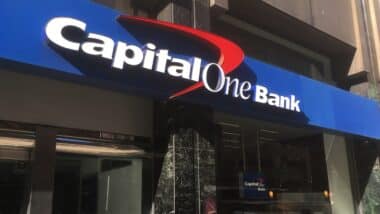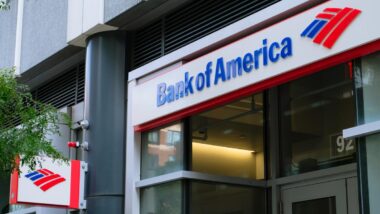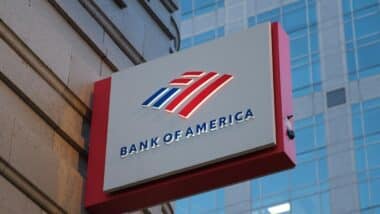 New York’s State Employees Federal Credit Union (SEFCU) overdraft protection program, along with those of other financial institutions, are currently under investigation for possible abuses.
New York’s State Employees Federal Credit Union (SEFCU) overdraft protection program, along with those of other financial institutions, are currently under investigation for possible abuses.
These alleged abuses may be costing consumers hundreds of dollars in unnecessary and unjustified fees when banks and credit unions engage in questionable and deceptive practices such as charging overdraft fees based on an account’s “available balance” as opposed to the actual balance, or scheduling transactions out of order.
The ways in which these fees are assessed have disproportionately affected low-income consumers, particularly minorities and younger people. In recent years, overdraft programs like the SEFCU overdraft protection program have prompted an explosion of consumer complaints – and the way in which they calculate customers’ balances are leading to class action lawsuits.
“Available Balance” vs. Actual Balance and SEFCU Overdraft Protection
Policies vary slightly from one bank or credit union to another, but essentially they all say something similar: “Our policy is to not delay the availability of funds that you deposit into your account any longer than necessary.” This statement is followed by an explanation of when the institution may put a “hold” on deposited funds – and for how long.
Essentially, this means that if Pat’s balance is $100 and she deposits a check (even a paycheck from her job) for $250, her “available balance” will remain $100 until that check clears the bank it’s drawn on. Under programs such as SEFCU overdraft protection, if Pat charges something on her debit card for $150 the same day she deposits her $250 check, the bank or credit union will honor the transaction, charging Pat an extra $35 for the privilege.
This can spare a consumer embarrassment on those occasions that they’re making a purchase and their account is a bit short of funds. However, consumer advocates are saying that financial institutions are taking unfair advantage, turning these fees into a “highly lucrative profit center.”
Did You Opt-In?
In 2010, the Federal Reserve issued new regulations that prohibit banks and credit unions from automatically enrolling customers in overdraft programs like SEFCU overdraft protection. By default, banking institutions are required to reject transactions that would overdraw the account.
Under current regulations, a customer must “opt-in” for overdraft protection. This prevents the customer from being turned down for a purchase or – in the case of paper checks – getting hit twice by punitive fees (once by their own bank and again by the merchant) or even criminal charges.
An exception to the rule is “pre-authorized transactions” – for example, if a customer had set up automatic payments for their car insurance or mortgage payments. These are not covered under overdraft protection regulations and can still result in penalties on both ends.
Lawsuits Are Being Filed
“Opting in” to SEFCU overdraft protection and similar overdraft protection programs is voluntary, and its fees avoidable. Many consumers do not understand that there is no fee when a debit card transaction is simply denied. Furthermore, they do not realize that once they exceed their “available balance,” they can be charged multiple times, even for minor purchases such as a cup of coffee.
Current lawsuits allege other practices as well:
- Processing transactions out of order: a number of banks and credit unions will process the highest payments first and minor debit card purchases last. This can trigger multiple overdraft fees if the consumer is unaware of what is going on.
- Failure to clearly explain overdraft protection programs. Customers may not fully understand that they cannot legally be charged overdraft fees unless they have agreed to participate in such a program in writing.
- Failure to disclose the manner in which the institution calculates “available balances” and when overdraft fees are assessed.
One silver lining is that some local branch managers have the authority to reverse a certain number of overdraft fees in a calendar year in some circumstances if the customer requests it. Some institutions also put limits on the number of overdraft fees that can be assessed, or allow customers to be alerted when their available balance is under a certain amount. This is not always the case however.
If you believe you have been improperly charged overdraft fees, you may be eligible to file or join a class action lawsuit. Plaintiffs may be able to recover said fees as well as compensation for inconvenience.
You may have a legal claim if your were charged excessive overdraft fees by one of these banks or credit unions:
- Alliant Credit Union
- Astoria Bank
- BECU (Boeing Employees Credit Union)
- Nationwide
- Pacific Western
- Patelco Credit Union
- State Employees Federal Credit Union (SEFCU – New York)
- Sterling Bank
- Educational Employees Credit Union (California)
Fill out the form on this page now for a free, immediate, and confidential case evaluation.
ATTORNEY ADVERTISING
Top Class Actions is a Proud Member of the American Bar Association
LEGAL INFORMATION IS NOT LEGAL ADVICE
Top Class Actions Legal Statement
©2008 – 2025 Top Class Actions® LLC
Various Trademarks held by their respective owners
This website is not intended for viewing or usage by European Union citizens.
Get Help – It’s Free
Join a Free Bank Overdraft Fee Class Action Lawsuit Investigation
If your bank and credit union has engaged in deceptive overdraft fee practices, you may have a legal claim. Fill out the form on this page now to find out if you qualify!
An attorney will contact you if you qualify to discuss the details of your potential case.
PLEASE NOTE: If you want to participate in this investigation, it is imperative that you reply to the law firm if they call or email you. Failing to do so may result in you not getting signed up as a client or getting you dropped as a client.
In order to properly investigate overdraft fee claims, you may be required to disclose bank statements to overdraft fee attorneys. Please note that any such information will be kept private and confidential.












